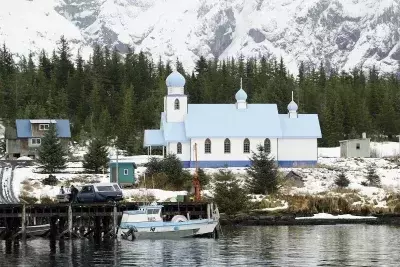





In a significant diplomatic move, Alaska, historically a Russian territory, is scheduled to host a high-level meeting between American and Russian leadership. This rendezvous in the frosty frontier carries profound historical echoes, as Alaska's past is intrinsically linked to prior conflicts and geopolitical shifts involving Russia, particularly the aftermath of the 1850s Crimean War, which saw Russia cede the vast territory to the United States. The upcoming talks are expected to navigate contemporary challenges, notably the ongoing Ukrainian conflict and the contentious status of Crimea, underscoring Alaska's enduring relevance as a strategic intersection.
The choice of Alaska as the summit venue is both practical and symbolically rich. Geographically, its proximity to both nations, separated by merely 55 miles of the Bering Strait, makes it a logical meeting point. Beyond its physical convenience, Alaska's history as a Russian colony from 1799 to 1867 adds a compelling layer of historical context. Notably, some Russian figures have recently highlighted this colonial past, sharing images of 19th-century Russian Orthodox churches still standing in Alaska, reminding observers that the region was a vibrant Russian settlement, not just an unclaimed wilderness. This historical depth suggests that the location itself contributes a unique narrative to the diplomatic discussions.
The sale of Alaska to the U.S. in 1867 for $7.2 million, following Russia's costly defeat in the Crimean War, marked a pivotal moment. The transaction, often dubbed \"Seward's Folly\" by critics at the time, saw Russia divest itself of a remote and economically declining asset. Today, as the international community grapples with current geopolitical tensions surrounding Crimea, the historical narrative of Alaska's peaceful transition stands in stark contrast to Crimea's contested status. While some in Russia still question the legitimacy of Alaska's purchase, advocating for its return, the territory's past serves as a poignant reminder of the ebb and flow of international relations and the enduring legacy of historical agreements on contemporary foreign policy.
The upcoming summit, set against this backdrop of shared and divergent histories, offers a critical opportunity for dialogue and potential resolution. It reminds us that even long-standing disputes can find pathways to peaceful negotiation, echoing the transfer of Alaska itself. By engaging in open communication, leaders can strive to overcome past grievances and forge a future built on mutual understanding and cooperation, demonstrating that diplomacy, even in the face of complex historical burdens, remains the most potent tool for resolving international crises and fostering a more stable world.
